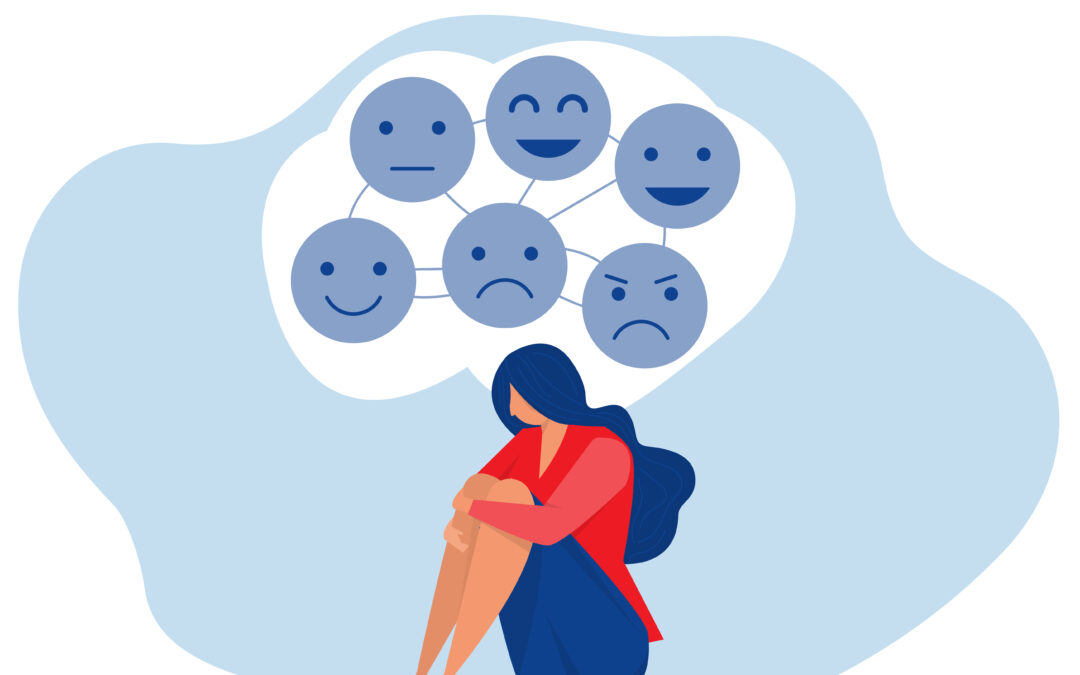Mood disorders are a common mental health condition that affect millions of people worldwide. They encompass a range of disorders that impact an individual’s emotional state, often causing significant distress and impairing daily functioning. As a leading psychiatric practice committed to mental health, Bluewater Psychiatry understands the importance of raising awareness about mood disorders and offering effective treatment options. In this blog post, we will explore the different types of mood disorders and discuss what can be done to manage and treat them.
Major Depressive Disorder
Major Depressive Disorder (MDD), commonly known as depression, is one of the most prevalent mood disorders. Individuals with MDD experience persistent feelings of sadness, hopelessness, and a loss of interest or pleasure in activities they once enjoyed. Treatment for MDD often involves a combination of psychotherapy, medication, and lifestyle changes. Psychotherapy, such as cognitive-behavioral therapy (CBT), can help individuals identify negative thought patterns and develop healthier coping mechanisms. Antidepressant medications may also be prescribed to regulate brain chemistry and alleviate symptoms.
Bipolar Disorder
Bipolar Disorder is characterized by extreme mood swings that alternate between episodes of mania and depression. During manic episodes, individuals may experience heightened energy, impulsivity, and grandiosity, while depressive episodes manifest as intense sadness, fatigue, and feelings of worthlessness. Treatment for bipolar disorder usually involves mood-stabilizing medications, psychotherapy, and lifestyle adjustments. Medications like mood stabilizers help manage the extremes of mood swings, while therapy can assist in developing strategies to cope with the disorder’s impact on daily life.
Persistent Depressive Disorder
Persistent Depressive Disorder (PDD), formerly known as dysthymia, is a chronic form of depression that lasts for two years or longer. Individuals with PDD often experience low-grade depressive symptoms that may not be as severe as those in major depression but can still significantly affect daily functioning. Treatment for PDD may include psychotherapy, medication, and support groups. Cognitive-behavioral therapy and interpersonal therapy are particularly effective in helping individuals address negative thinking patterns and improve their overall well-being.
Seasonal Affective Disorder
Seasonal Affective Disorder (SAD) is a mood disorder that typically occurs during the winter months when there is less sunlight. Individuals with SAD may experience symptoms such as fatigue, increased sleep, weight gain, and a loss of interest in activities. Light therapy, where individuals are exposed to bright light to mimic natural sunlight, is a common treatment for SAD. Psychotherapy and medication can also be beneficial in managing symptoms.
Contact Bluewater Psychiatry
Mood disorders can have a significant impact on an individual’s life, but they are treatable with the right interventions. Seeking help from a mental health professional, such as a psychiatrist, is crucial in developing an individualized treatment plan. Bluewater Psychiatry is dedicated to providing compassionate care and evidence-based treatments for individuals struggling with mood disorders. Remember, you are not alone, and with the right support, you can effectively manage your condition and improve your overall well-being.

